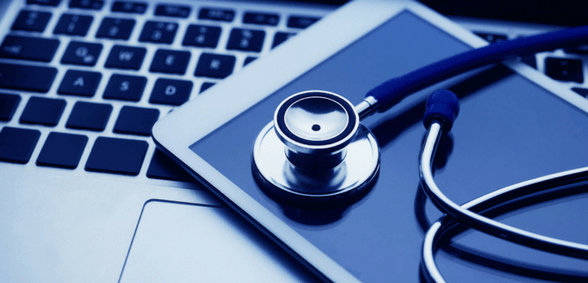
The world is changing and becoming more and more technology-driven. Dr Murray Ellender, a London GP and co-founder of eConsult, says that general practice can’t afford to be left behind
 What will the future of healthcare look like? It’s a pertinent question for those of us working in general practice, which is buckling under the pressure of rising demand and a declining workforce. Add into that a growing cohort of tech-savvy patients who are used to accessing everything at the press of a button or swipe of a screen, and it’s easy to see why digital solutions are now firmly in the spotlight.
What will the future of healthcare look like? It’s a pertinent question for those of us working in general practice, which is buckling under the pressure of rising demand and a declining workforce. Add into that a growing cohort of tech-savvy patients who are used to accessing everything at the press of a button or swipe of a screen, and it’s easy to see why digital solutions are now firmly in the spotlight.
The digital future is here
This year the NHS turns 70 and, even though the pressures on patients and doctors have changed beyond recognition, the GP consulting model has remained largely the same. Digital technologies, however, are proving to be a driving force for change. By the end of this year all NHS patients in England are expected to have online access to their GPs. Within five years, as many as nine out of ten consultations are likely to start within a virtual space. Like it or not, the digital future is already here.
Every human tool and technique, from the stone axe onwards, is an example of ‘technology’ in action. Our ability to create and innovate – to design products and processes which extend our abilities and simplify our daily lives – is a defining characteristic of what it means to be human. It’s why digital has become such an intrinsic part of modern day life; from banking online to ordering an Uber, technology has created a new normal. Harnessing digital innovation to power a sustainable NHS is a natural next step.
Digital triage technology
Within general practice, technologies such as eConsult – the most widely used digital triage tool in the NHS – are already offering an online alternative to face-to-face consulting. They allow patients to seek advice from their own GP online at a time and place that suits them. Serious or sinister symptoms raise a red flag immediately, while more routine concerns can be dealt with remotely, saving both GPs and patients precious time.
Patient support for digital GP access is strong: Old Machar Medical Practice in Aberdeen, for example, has seen ‘exponential’ growth in the number of patients using eConsult since launching the system just over a year ago. “The more people use it, the more people find out about it,” says practice manager Fiona Paterson. “We have loads of repeat users because it works for them.”
No room for scepticism
Yet many GPs have greeted the concept of online consulting with scepticism and, in some cases, outright hostility. This isn’t altogether surprising: doctors are trained to seek proof of efficacy and, with online consulting still in its earliest phases, the evidence-base is still limited. Of the academic studies that are available, the majority are now outdated – a particular challenge in the evaluation of rapidly evolving technologies such as these.
The current paucity of academic research certainly needs addressing but doesn’t mean online consulting should be automatically dismissed as unsafe and ineffective. Virtual systems are becoming safer and more sophisticated by the day. At eConsult, we collect and analyse data on a weekly basis, listening to feedback from practices and patients to constantly refine our system for ease of use, efficacy and clinical safety.
The more practices jump online and embrace new ways of consulting, the better chance we have of building data sets that allow us to improve and transform our digital offering.
GPs can no longer bury their head in the analogue sand: the digital future has arrived and it’s not going away. Digital technologies offer hope of a brighter future that can address the complex challenges of today’s general practice. The time has come to let go of old prejudices and embrace the opportunities that digital innovation – in all its many forms – can bring. Technologies are tools, after all. What we make of them is up to us.
Don’t forget to follow us on Twitter, or connect with us on LinkedIn!

Be the first to comment